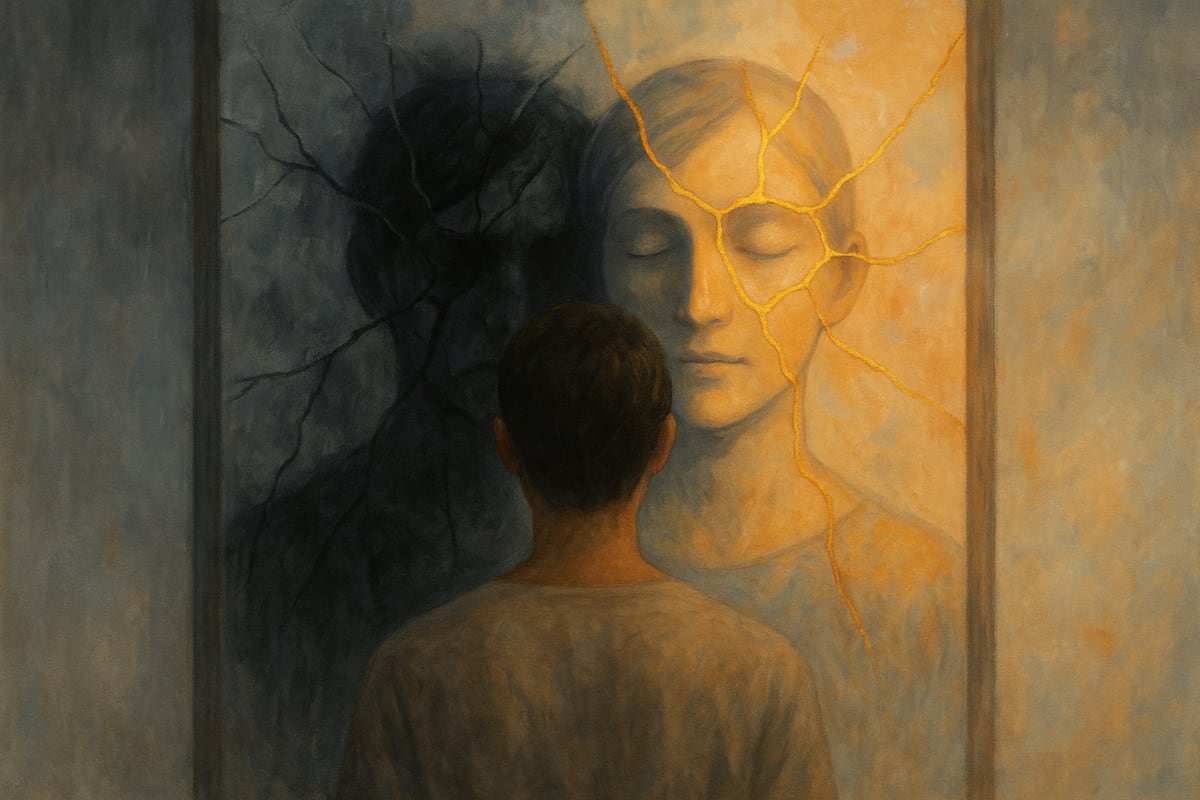TLDR: This blog post explores the complex relationship between self-image and trauma, particularly in survivors of sexual abuse. It delves into the emotional and spiritual scars left by such experiences, societal expectations of modesty, and the journey towards self-acceptance and healing.
For many individuals, the journey of self-acceptance can be fraught with challenges, especially for survivors of trauma. This blog post reflects on the profound impact of sexual abuse on self-image and the emotional turmoil that often accompanies it. The narrative shared here is a testament to the struggles faced by those who have endured such experiences and the path towards healing.
The Weight of Trauma
From an early age, the feeling of being ugly can take root in a person's psyche, often without a clear understanding of its origins. For survivors of sexual abuse, this feeling is compounded by the physical and emotional scars left behind. The trauma of being raped or abused can leave a piece of that experience embedded within, manifesting as a sense of unworthiness and shame.
The Binding Nature of Sexual Trauma
Sexual experiences are inherently powerful and can create deep emotional bonds. However, when those experiences are rooted in violence and violation, they can bind individuals to dark energies that are difficult to comprehend. Survivors may feel as though they are forever linked to the trauma, carrying an invisible burden that influences their self-perception and interactions with the world.
Societal Expectations and Modesty
Growing up in a society that places a high value on modesty can further complicate a survivor's relationship with their body. Messages from religious institutions and cultural norms often emphasize the chastity of women, equating their worth with their ability to remain pure. Phrases like "prized above rubies" can resonate deeply, leaving survivors feeling unclean and unworthy.
The Impact of Shame
The societal narrative that suggests women's bodies are dangerous can lead to feelings of shame and self-repulsion. Survivors may internalize the belief that their bodies are to blame for the abuse they suffered. This can manifest in various ways, including a reluctance to embrace one's own sexuality or a fear of one's physical appearance.
Personal Experiences of Shame
The personal experiences shared by survivors often highlight the deep-seated shame associated with their bodies. For instance, a father’s comment about a daughter’s appearance can leave lasting scars, reinforcing the idea that one's body is something to be hidden or ashamed of. Such experiences can create a rift between the individual and their own body, leading to a profound sense of disconnection.
The Mirror's Reflection
The struggle with self-image can be exacerbated by the way individuals perceive themselves in mirrors. Many survivors report seeing a distorted version of themselves, often feeling monstrous or hideous despite external validation of their beauty. This disconnect between self-perception and reality can lead to isolation and a reluctance to engage with the world.
The Journey Towards Healing
Recognizing the link between self-image and trauma is a crucial step in the healing process. It requires confronting the negative beliefs that have been internalized and challenging the narratives that have shaped one's self-perception.
Finding Support
Support from others, whether through therapy, support groups, or trusted friends, can be invaluable. Sharing experiences and hearing others' stories can help survivors realize they are not alone in their struggles. This communal aspect of healing can foster a sense of belonging and understanding.
Conclusion
The journey towards self-acceptance for survivors of sexual abuse is often long and arduous. It involves unraveling the complex emotions tied to trauma, societal expectations, and personal experiences. However, through understanding, support, and self-compassion, it is possible to reclaim one's identity and embrace a healthier self-image. The path may be challenging, but it is also filled with the potential for profound healing and transformation.
